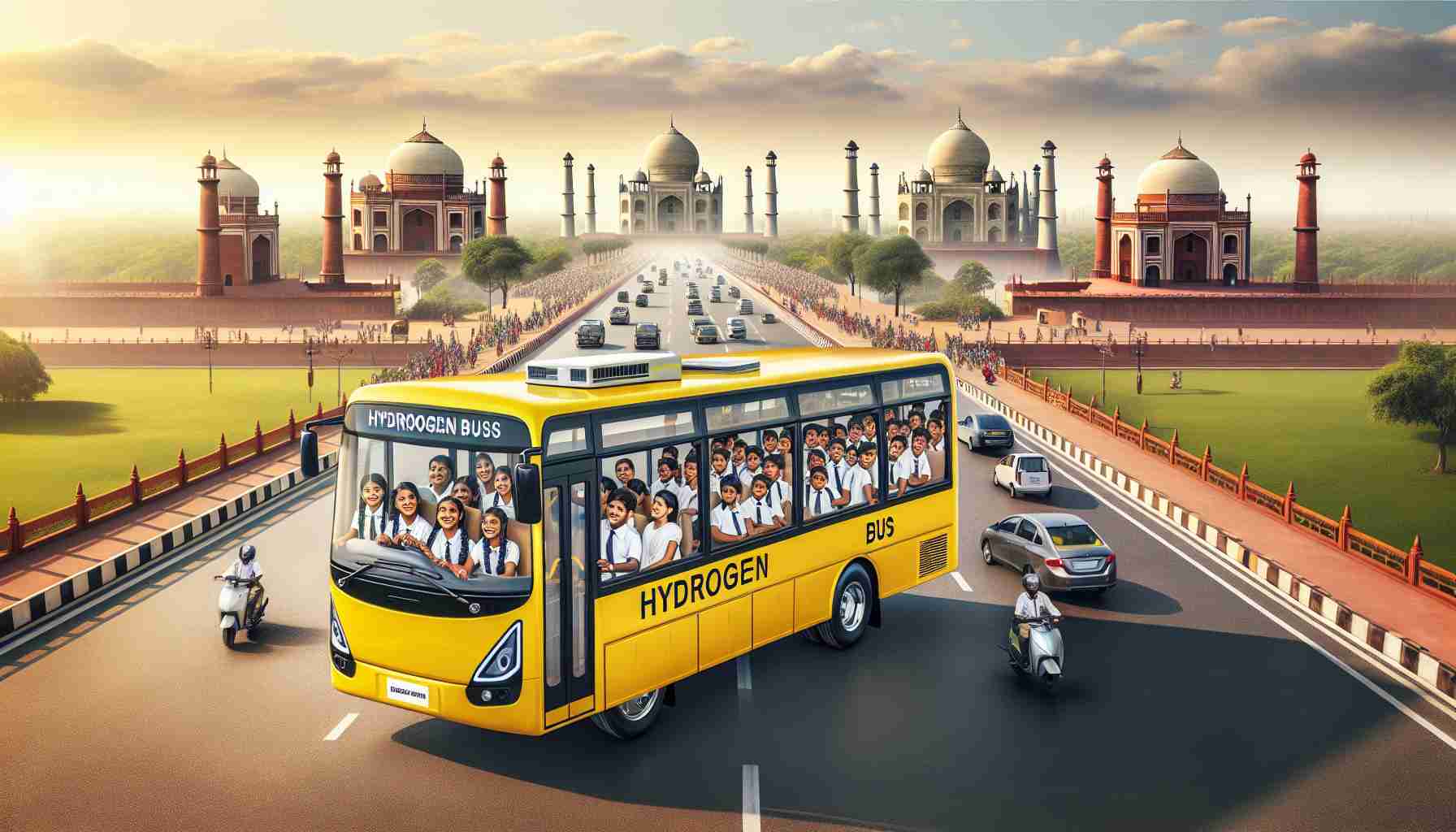A Sustainable Transformation in Education
In a significant advancement for eco-friendly transportation, Splitwaters, a pioneering company from the United States, has joined forces with Oriana Power in India to create a groundbreaking green hydrogen plant. This facility, capable of generating 1 MW of energy, aims to power a new fleet of environmentally friendly buses for the VIBGYOR Group of Schools. Projected to produce over 150,000 kilograms of green hydrogen each year, this state-of-the-art plant will also host a dedicated service station to fuel hydrogen buses in Bangalore, Karnataka.
Currently, VIBGYOR operates a vast network of educational institutions and manages a substantial fleet of diesel buses. To kickstart this ambitious initiative, a pilot project will deploy between 20 to 25 hydrogen buses at the VIBGYOR High School in Marathahalli, marking a critical shift towards sustainable school transportation. The ultimate vision includes a complete transition from diesel to hydrogen buses across VIBGYOR’s operations.
Set to commence by the end of 2025, the pilot’s success will pave the way for extending this model to other Indian cities, aligning with national objectives to reduce harmful emissions and enhance air quality. This innovative initiative presents an inspiring example of how educational institutions can lead the charge in adopting sustainable technologies for a cleaner future.
Revolutionizing School Transport: How Green Hydrogen is Setting New Standards for Educational Institutions
A Sustainable Transformation in Education
In a remarkable step towards eco-friendly transportation, Splitwaters, a pioneering American company, has partnered with Oriana Power in India to establish an innovative green hydrogen plant. This facility, designed to produce 1 MW of energy, will power a new fleet of environmentally friendly buses serving the VIBGYOR Group of Schools. Anticipated to generate over 150,000 kilograms of green hydrogen annually, the plant will include a dedicated service station for hydrogen buses located in Bangalore, Karnataka.
VIBGYOR, known for its extensive network of educational institutions, currently operates a large fleet of diesel buses. The planned pilot project will deploy between 20 to 25 hydrogen buses at the VIBGYOR High School in Marathahalli. This initiative represents a significant move towards sustainable transportation within the education sector, aligning with burgeoning trends in green energy adoption.
Innovations in Green Transportation
The implementation of hydrogen buses in educational transport reflects broader trends in sustainability. The shift from diesel to hydrogen is not only pivotal for schools but also reinforces India’s commitment to reducing greenhouse gas emissions. With the transport sector being a major contributor to pollution, leveraging hydrogen as a clean fuel could provide substantial environmental benefits.
Use Cases of Hydrogen Buses
Hydrogen buses are becoming increasingly prevalent in urban public transport. They provide several advantages, including:
– Zero Emissions: Producing only water vapor as a byproduct.
– Reduced Noise Pollution: Operating quietly, they improve urban living conditions.
– Higher Efficiency: Hydrogen fuel cells convert energy to motion more efficiently than traditional combustion engines.
Limitations and Challenges
Despite the promising benefits, there are important challenges to consider:
– Infrastructure Development: Establishing hydrogen refueling stations is crucial and can be costly.
– Cost of Hydrogen Production: While green hydrogen is becoming more viable, the initial production costs can be high compared to fossil fuels.
– Public Acceptance: Educating the community on the safety and benefits of hydrogen buses is necessary for widespread adoption.
Market Analysis and Future Prospects
The shift to hydrogen buses in India marks an intriguing trend as the country aims to overhaul its transportation infrastructure sustainably. Market analysts predict that investments in hydrogen technology will continue to grow, driven by governmental support and international trends toward green energy.
Additionally, as more educational institutions like VIBGYOR adopt hydrogen technology, they can become role models for other sectors, emphasizing the importance of sustainability in everyday life.
As the pilot project is set to commence by the end of 2025, its success may inspire similar initiatives across other Indian cities, thus contributing to national efforts to combat climate change and improve ambient air quality.
To learn more about innovations in educational sustainability and green technology, visit VIBGYOR Group.

